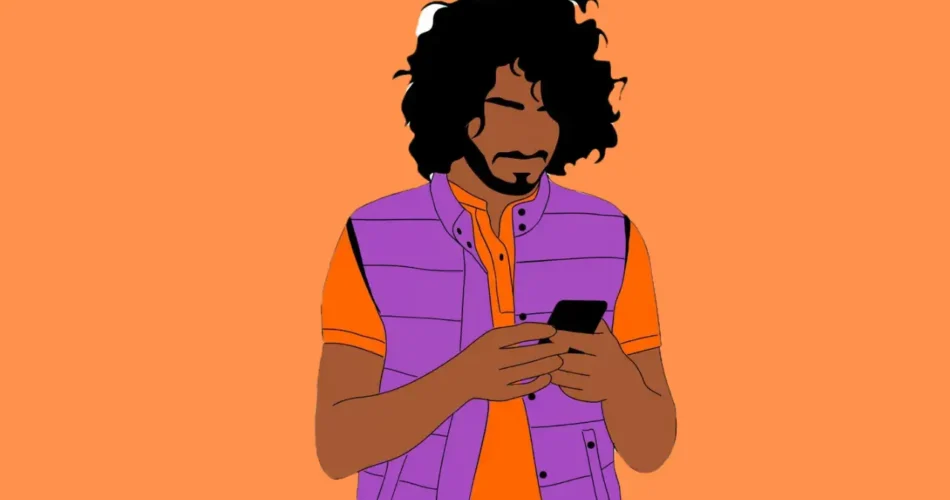It is quite unfortunate that network providers in Nigeria are very fond of selling previously owned or used SIM cards. This isn’t a bad idea, but it comes with a huge risk.
I’ve seen many people complaining about new SIM cards previously used by someone in Nigeria.
Well, that has happened to me, and in this article, I will list and explain the risks, especially in the financial industry.
The risk of using a new sim card previously used by someone
The risk are as follows;
1. The phone number cannon be linked to a bvn
I’ve seen this happen to many people; their new phone number cannot be linked to a BVN because it is already linked to another bank verification number.
And in this type of situation, there is nothing you can do except look for another phone number for your BVN.
Here’s the truth: if a phone number is registered or linked to a BVN, it will permanently remain linked to that BVN until the user removes it.
In a situation where the person is no longer using the phone number or the number is disconnected by the network provider, it will still be linked to the BVN.
And, as long as the phone number is linked to a BVN, it cannot be linked to another.
If you find yourself in this type of situation, all you have to do is get a new phone number and try to link the number to your BVN.
2. Previously used by a criminal
This is the most risky aspect of using a sim card or phone number previously used by someone.
The number may have been used by a criminal.
Yes, I’m saying this from experience, as my boss was arrested because the phone number he recently bought was previously used by a criminal, probably a kidnapper.
He was arrested and accused to be a kidnapper.
Luckily for him, MTN had the date of his SIM registration, and his being a top-notch customer was his saving grace.
It is quite unfortunate that most of the SIM cards being sold by MTN are used phone numbers, and situations like this are usually very delicate, especially if you are a layperson.
Don’t Miss:
3. Fraud and Impersonation
Clients, colleagues, or systems may still associate the number with the banker who previously used it.
- You could receive calls or texts from clients sharing private financial info.
- There’s a real danger of being mistaken for that person—which can lead to accidental fraud or impersonation scenarios.
How to protect a bank account
Protecting your bank account is crucial to safeguarding your money and identity. Here’s a comprehensive list of practical ways to protect your bank account, along with clear explanations for each:
1. Use Strong, Unique Passwords
Why: Weak or reused passwords are easy to crack, especially in phishing or data breaches.
What to Do:
-
Use at least 12 characters with a mix of letters, numbers, and symbols.
-
Avoid common passwords like 123456 or password.
-
Use a password manager to generate and store secure passwords.
2. Enable Two-Factor Authentication (2FA)
Why: Adds an extra layer of security beyond your password.
What to Do:
-
Activate 2FA on your bank’s mobile app or website.
-
Prefer app-based 2FA (e.g., Google Authenticator, Authy) over SMS-based 2FA for better security.
3. Beware of Phishing Scams
Why: Fraudsters often impersonate banks via email, SMS, or phone to steal your credentials.
What to Do:
-
Never click on suspicious links or download attachments from unknown senders.
-
Verify bank messages directly through official apps or websites.
-
Banks will never ask for your PIN or full password over the phone or email.
4. Avoid Using Public Wi-Fi for Banking
Why: Public Wi-Fi is often unsecured, making it easy for attackers to intercept data.
What to Do:
-
Use a VPN if you must access your bank account on public Wi-Fi.
-
Otherwise, wait until you’re on a secure, private network.
5. Secure Your Mobile Device
Why: Your phone may hold access to your banking app, 2FA, and SMS alerts.
What to Do:
-
Use a strong device lock (PIN, fingerprint, or face ID).
-
Keep your operating system and apps updated.
-
Enable remote wipe features (e.g., “Find My iPhone” or “Find My Device” on Android).
6. Monitor Your Bank Account Regularly
Why: Spotting unauthorized transactions early can help minimize damage.
What to Do:
-
Set up real-time alerts for withdrawals, transfers, and logins.
-
Review your statements and transaction history at least weekly.
Why: Sharing details like your account number, CVV, or online banking login makes it easier for someone to access your money.
What to Do:
-
Only provide bank info to trusted, verified parties.
-
Be cautious of requests for payments via wire transfers or P2P apps like Zelle or Cash App.
7. Log Out After Online Banking Sessions
Why: Staying logged in, especially on shared or public devices, exposes your account to hijacking.
What to Do:
-
Always log out when finished, and never save credentials on public devices.
8. Inform Your Bank About Lost Devices or Fraud
Why: Quick action can prevent or reverse unauthorized transactions.
What to Do:
-
Contact your bank immediately if you lose your phone or see suspicious activity.
-
Request a temporary freeze or block on the account if needed.



